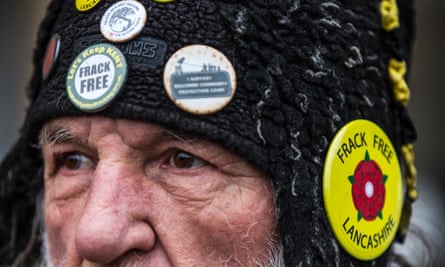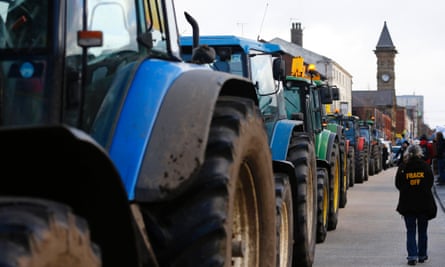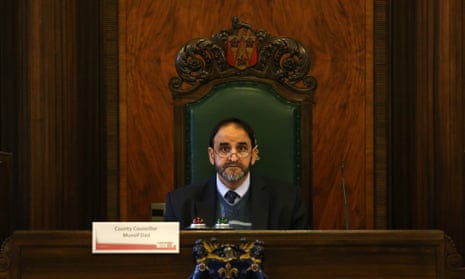Planning decisions on the UK’s full scale fracking have been deferred for eight weeks by Lancashire county council (LCC), which was due to decide this week on two proposals from shale gas explorer Cuadrilla.
But after council planning officers recommended last week that permission should be refused on the grounds of “unnacceptable” noise and heavy truck traffic, Cuadrilla submitted revised proposals.
LCC’s chief legal adviser said on Wednesday that these proposals were “substantive” and therefore had to go out to public consultation.
Councillors on the planning committee reluctantly accepted the legal advice and deferred the decisions. “I [do] this with the heaviest of hearts,” said Marcus Johnstone. “I have deep concern that the uncertainty for the communities will continue.”
Another LCC councillor on the committee, Paul Hayhurst, said: “Many people’s health is suffering from the work they have had to put in and the worry.”
A third councillor, Steven Holgate, said: “I am downright angry”. Referring to a letter sent by George Osborne that urges “rapid progress” on fracking, he said: “There are too many people digging their fingers into affairs that are not theirs.” He said the Cuadrilla applications should be “for us to decide”.
A spokesman for Cuadrilla said: “The additional information we have provided on further mitigation measures will, we believe, fully address the noise and traffic concerns ... There will now be an opportunity for the public to properly review and comment on this. We remain committed to the exploration of shale gas in Lancashire.”
Lancashire has been at the forefront of the UK’s nascent shale gas industry, an issue that has divided opinion in the county.
Small earthquakes caused by Cuadrilla’s activity in 2011 saw a moratorium put in place. But once it was lifted, the company submitted plans for up to four wells at each of two sites, Preston New Road and Roseacre wood. Each site would see hundreds of fracks – the high pressure injection of water, sand and chemicals – to test how much gas can be released.

The planning officers last week concluded that the increase in night-time noise from Cuadrilla’s operations would be too great at both sites, and that heavy truck movements at Roseacre would involve a “severe” increase in traffic, particularly HGVs, creating an “impact on existing road users, particularly vulnerable road users and overall highway safety”.
The planning officers considered other issues, including public health, air and water pollution, subsidence and earthquake risk, but said these impacts “would be low or could be mitigated” and “concluded that the principle of exploration for shale gas would be acceptable”.
Two days later, Cuadrilla said it would put in place more sound barriers around the drilling rig and use new traffic routes. These proposals will now go out for public consultation.
Helen Rimmer, from Friends of the Earth said she was disappointed with the deferral. “Cuadrilla have had several months to present their case,” she said. “While a further delay is another setback for Cuadrilla, its manipulation of the planning system has created more uncertainty for communities whose health and environment are at risk from controversial fracking.”
Greenpeace’s Simon Clydesdale said: “Allowing more time for Cuadrilla to tinker with their application is not going to change the fundamental fact that fracking is a massive gamble with low returns for the people of Lancashire.”

David Cameron has said the government is “going all out” for fracking in the UK, claiming it would create jobs and cut the country’s reliance on gas imports. But opponents argue it risks health and environmental impacts and undermines efforts to tackle climate change.
On Monday, the government was forced to accept a series of new environmental regulations from Labour. But a new moratorium on all fracking, proposed by a committee of senior MPs including former Tory environment secretary Caroline Spelman, was voted down. Junior Lib Dem minister Tess Munt resigned after backing a ban.
Scotland is considering a ban on onshore fracking on Wednesday, with the Scottish National Party due to respond to Labour’s pledge that it would introduce a ban in 2016 if elected. In Wales, first minister Carwyn Jones said on Wednesday that the power to licence fracking should be devolved to the Welsh assembly and that a moratorium should be considered.
I take the view that licensing should be devolved and then we should consider a moratorium on fracking #FMQs
— Carwyn Jones (@fmwales) January 27, 2015

Comments (…)
Sign in or create your Guardian account to join the discussion